Solving for Business
Because business drives economic growth & social freedom
Premiering in late 2022, our new “About Us” video explains how we’re “Solving for Business.”
By the Numbers
Our Impact Since 1992
& Businesses
Letter from the president
Companies that employ 250 people or less, often referred to as small- and medium-sized enterprises (SMEs), account for 50% of jobs worldwide. In emerging countries, the World Bank estimates formal SMEs account for 40% of gross domestic product; a number that is likely to be much higher when including the informal sector. Yet in emerging countries, most managers of SMEs lack any formal training, let alone formal business training. The vast majority also lack access to consulting services, which can be a substitute for training.
Bharath Krishna Sankar, the founder of business compliance and consulting firm Aparajitha in Madurai, India, knows this all too well. When I first spoke with Bharath more than ten years ago, he saw the lack of training available for SME leaders as an important opportunity — a mindset we share at the William Davidson Institute at the University of Michigan.
Bharath’s insight led to the creation of Poornatha, a business and leadership education organization committed to unlocking the talent and economic prosperity of SMEs.
This shared dedication was a catalyst for creating the Michigan Academy for Developing Entrepreneurs (MADE). Formed by the Zell Lurie Institute for Entrepreneurial Studies at U-M, WDI and Poornatha, MADE was established to support organizations, like Poornatha, in developing economies that provide the type of training managers might seek from big-name consultants, but at a far more affordable price and tailored to the needs of the local SMEs.
With MADE’s support in the form of consulting, training, mentoring and other services benefiting SMEs, Poornatha went on to train its first cohort of 27 companies. While the COVID-19 pandemic undermined some of Poornatha’s plans, the organization, led by Suresh Thirunavukkarasu and Kaushal Singh, nonetheless trained more than 2,000 owners of SMEs in eight different languages and provided financial literacy training to more than 12,000 individuals across 28 different Indian states.
For our part, WDI has supported the founding and growth of Poornatha by combining our global business expertise with Poornatha’s local knowledge. Through MADE, WDI has worked with similar organizations in Senegal, Kenya and Ukraine to share best practices and resources. This year, we are beginning work with a new MADE partner in Vietnam.
MADE also has presented an unusual opportunity for U-M students. More than 100 students from U-M schools, primarily the Ross School of Business, Law School, and the Institute for Social Research, have worked on projects with Poornatha and other MADE partners, providing valuable insights to companies developing profitable business models. In the process, these students have gained a deep understanding of the opportunities and challenges of operating in these markets. This type of first-hand experience is invaluable for careers that are likely to include work in low- and middle-income countries (LMICs).
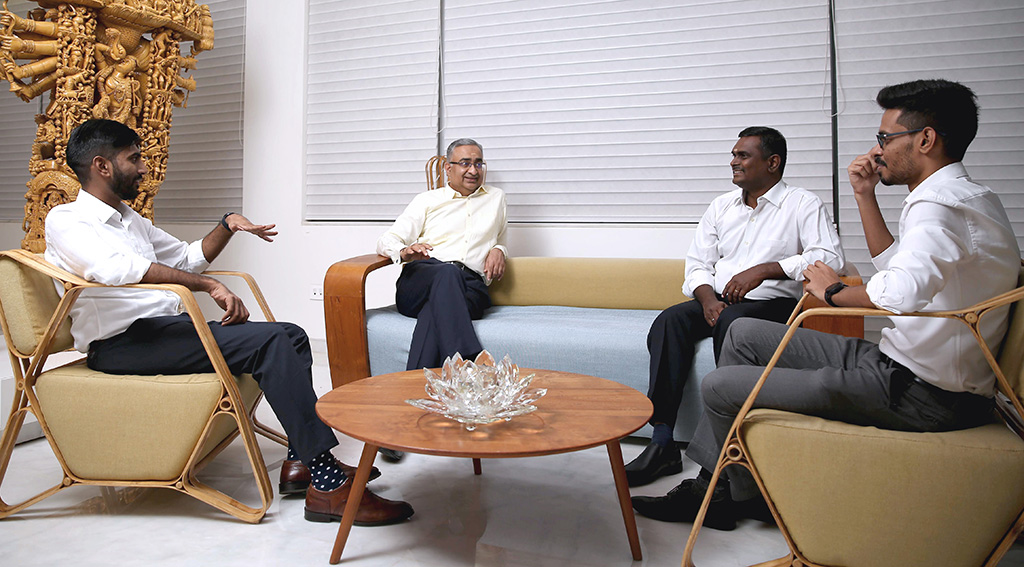
Our global understanding of the importance of SMEs drives our work with local partners to develop concrete plans that are executed locally. This is true across WDI. The stories in this year’s edition of Insights reflect the same type of relationship. The global trend toward electric vehicles has heightened the urgency of our work in developing an electric mobility roadmap for the automotive industry in Mexico. Russia’s invasion meant quickly adapting our management training near conflict zones on the border with Ukraine. As the importance of diseases beyond AIDS, malaria and tuberculosis has increased in emerging countries, the global development and investment communities are increasingly focusing on hospitals and clinics treating chronic ailments, such as heart disease and cancer. This worldwide trend inspired the creation of our training program for leaders at hospitals and clinics in Ghana, Mexico, Nigeria, Kenya and Pakistan. All of which is to say, the business of change is increasingly local.
Magatte Wade, our Ralph J. Gerson Distinguished Lecturer of 2022, spoke about the “Cheetah Generation” — a group of dynamic African business leaders who are changing the landscape in Africa through entrepreneurship. These leaders are responding to global changes, each in their own way. Businesses are inherently able to adjust to global changes; indeed, survival requires them to adjust. This edition of Insights includes a few examples of the many ways WDI is working with the “cheetahs” of the world to employ the tools of commercial success in addressing the global challenges of today.

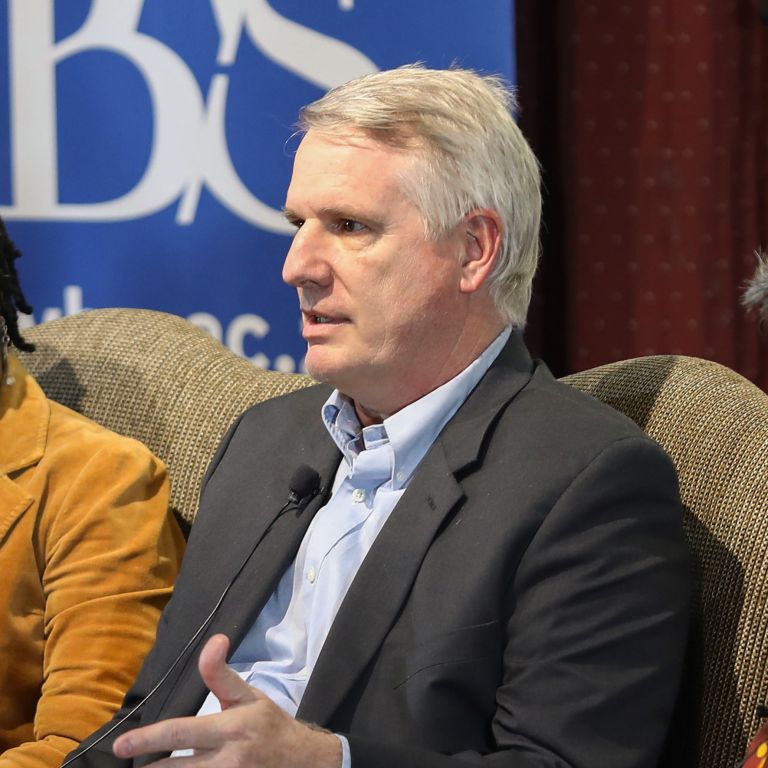

Paul Clyde,
WDI President
From managing post-traumatic stress to safeguarding digital security, the NGO Leadership Workshops pivoted to the Ukrainian refugee crisis
Russia’s invasion of Ukraine in February 2022 destabilized the country of 41 million at every level of society. It also plunged non-governmental organizations (NGOs) and other civil society organizations into the line of fire as many assisted fleeing Ukrainian citizens. More than 9.5 million Ukrainian refugees crossed the border into neighboring Poland, where the Weiser Center for Europe and Eurasia (WCEE) at the University of Michigan and WDI partnered to deliver the NGO Leadership Workshop in Warsaw. Since 2015, these four-day workshops have been held twice each year in Slovakia and Poland, bringing together nonprofit leaders to network with one another, learn about topics close to their work and connect with global experts.
Traditionally, the sessions cover topics such as planning and sustainability, NGO management, marketing strategies, advocacy and fundraising. In Poland, however, experts also shared advice on maintaining digital security, planning strategically during crises, avoiding staff burnout and working with people experiencing post-traumatic stress disorder.
As WDI planned the 2022 workshop, it was impossible to deny the growing pressure placed on regional nonprofits. WDI and WCEE worked to adapt the program to meet the realities on the ground, recognizing how the war made investments in civil society more urgent.
“Dedicating the workshop to NGOs working with Ukrainian refugees made it possible for us to tailor sessions to their specific needs. It also created a safe space for them to discuss difficult topics,” said Geneviève Zubrzycki, WCEE Director and U-M Professor. “For NGOs working with Ukrainian refugees, there’s a level of urgency and human tragedy that we can’t ignore.”
Two NGO Leadership Workshops are planned for Bratislava, Slovakia, and Warsaw, Poland, in 2023.

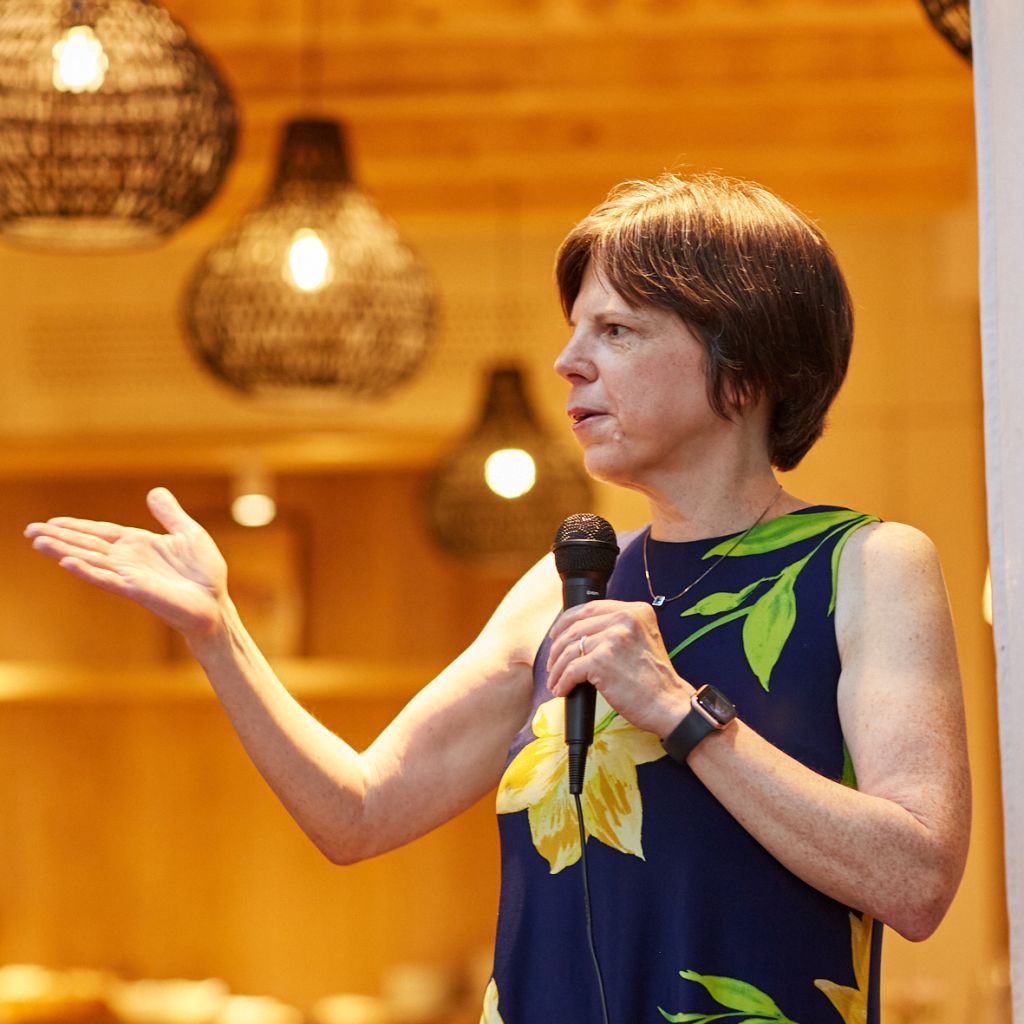
“The entire workshop considered what the organizations’ immediate needs were and what they were grappling with, and then we created the curriculum around that, focusing on the most pressing needs.”
—Amy Gillett, WDI Vice President, Education

What’s Next: Business Alumni Survey in Ukraine
WDI continues to engage partners such as Lviv Business School of Ukrainian Catholic University (pictured) and Kyiv School of Economics. In a new project, WDI is developing a survey for alumni of each institution. The goal is to understand how business schools can best support businesses as they emerge from the war and the degree to which trust in business relationships has changed. The schools plan to use the survey data to develop or improve the services they provide to the private sector.
New Healthcare Delivery Management Training is designed to empower professionals facing common challenges
Photo (above): Medical staffers at OSME clinic in Mexico
Private hospitals and clinics in low- and middle-income countries (LMICs) often grapple with common growing pains that inhibit their potential to treat patients with quality care and flourish as enterprises.
“I repeatedly saw businesses struggling with similar issues, regardless of where in the world they operated,” said Ioan Cleaton-Jones, WDI Senior Director of Healthcare Delivery.
Before joining WDI, Cleaton-Jones worked for the World Bank Group’s International Finance Corporation, financing private healthcare delivery organizations in LMICs.
Cleaton-Jones and WDI President Paul Clyde, who have reviewed hundreds of business plans in multiple emerging markets, saw an opportunity to expand WDI’s training offerings to include healthcare professionals. In 2022, WDI launched Healthcare Delivery Management Training, designed for senior leaders at private hospitals and clinics in LMICs. The course currently focuses on operations, with modules on finance, strategy, corporate governance and the elements of a strong health delivery enterprise — either already in development or planned for the future. Participants apply their knowledge practically to solve real challenges at their businesses while working with executives and leaders from other healthcare businesses and countries.
The first two hospitals to participate in the course were OSME Clinic in San Luis Río Colorado, Mexico and Nyaho Medical Center in Accra, Ghana. Leaders at R-Jolad Hospital and Evercare Hospital Lekki, both located in Lagos, Nigeria; Avenue Hospital in Nairobi, Kenya; and Evercare Hospital Lahore in Lahore, Pakistan, also have completed classes and are using their new skills to carry out projects to improve their processes and better understand the costs of patient care. Delivered virtually, the course empowers these professionals to complete the training according to their schedules and to participate in synchronous classes with WDI staff, faculty from top-ranked U.S. business schools and peers from other countries, without the need for travel.

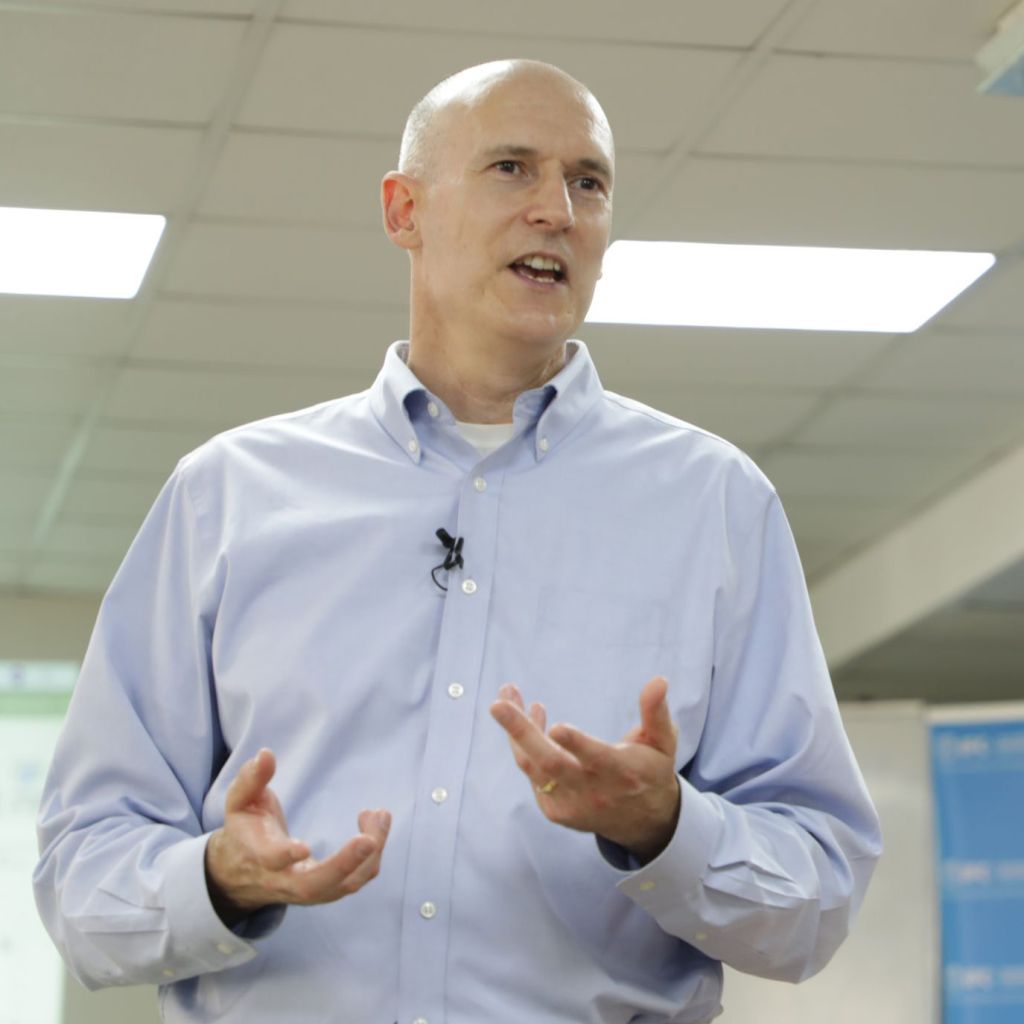
“The feedback we received after the first course was overwhelmingly positive. Participants found the action-based learning project really cemented the skills they learned, while understanding how their peers in other countries managed very similar challenges.”
— Ioan Cleaton-Jones, WDI Senior Director, Healthcare Deliver
What's next: Breaking Ground
In early 2023, the North American Development Bank and Grupo OSME signed a US$14.2 million loan agreement to finance construction of the OSME medical complex in Mexico. WDI conducted the due diligence on OSME’s expansion plan, which will increase access to general and urgent healthcare services for local residents, including agricultural workers and their families in this southwestern border region near Yuma, Arizona. The project includes the design, construction and operation of a private hospital with space for 67 beds, an emergency room, operating rooms, intensive care unit, radiology and laboratory, along with a medical specialties center. Cleaton-Jones also was appointed to OSME’s board of directors at the invitation of the company’s shareholders.
WDI’s ‘Roadmap’ charts the way for industry in Mexico
Photo (above): Diana Páez, of WDI, and Fernando Alba, of the State of Chihuahua, take questions on the e-mobility report at a March 2022 press conference in Mexico.
In 2022, global electric vehicle sales rose 60%, surpassing 10 million for the first time. And after more than 10 months of research, interviews, onsite visits and detailed workshops, WDI’s Energy and Mobility group released the “Roadmap to E-mobility for the State of Chihuahua” in a project supporting the Mexican State of Chihuahua’s transition to electric mobility (e-mobility).
With nearly 184,000 people employed in the auto and transportation sector and dozens of suppliers, Chihuahua plays a crucial role in the automotive supply chain in North America. Key investments in the e-mobility transition in the state will increase the momentum behind Mexico’s recent moves to strengthen its position in the EV supply chain.
Developed alongside Chihuahua’s Secretaría de Innovación y Desarrollo Económico (SIDE) and the Instituto de Innovación y Competitividad (I2C), the roadmap delves into key opportunities across the EV value chain and the key elements of the emerging global e-mobility ecosystem. It also identifies the most effective strategies to prepare for the e-mobility transition, highlighting its impact on Chihuahua and greater North America.
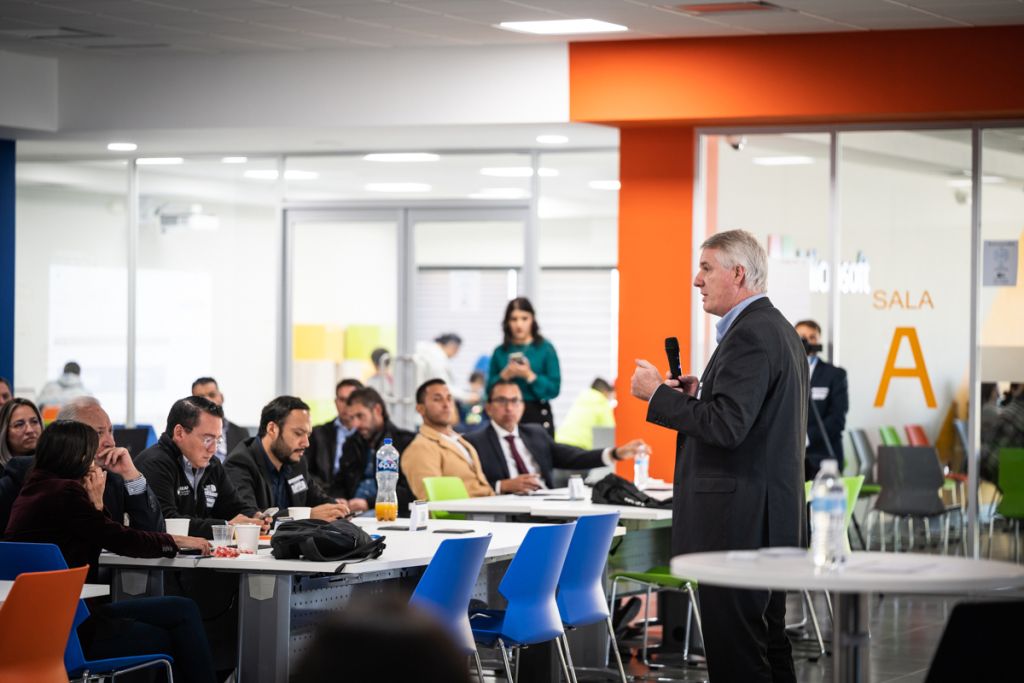
The WDI team identified e-mobility opportunities, including a focus on EV assembly, component suppliers, semiconductors and battery plants, based on Chihuahua’s current resources and ability to attract further investment from auto industry partners.
Many of the recommendations in the roadmap stem from what was learned about Chihuahua’s preparedness to shift to e-mobility. WDI developed an “E-Mobility Readiness Assessment” tool to evaluate Chihuahua’s overall capabilities to manage this transition, with a focus on the production of light-duty EVs. The tool can also be used to evaluate the readiness of other markets around the globe.
“The auto industry is undergoing a rapid transformation, and our goal is to position Chihuahua as a key player in North America and beyond,” said Fernando Alba, Undersecretary for Mining, Energy, and Industry for the State of Chihuahua. “The shift toward e-mobility presents an expansive range of opportunities, and WDI’s roadmap provides a clear path to achieving our objectives.”

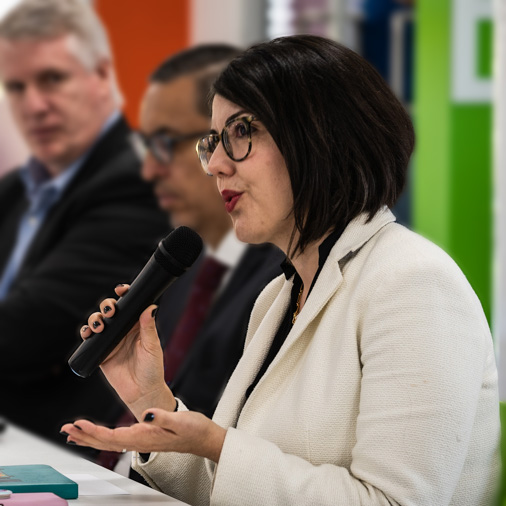
“Having clear direction leads to a better understanding of how to leverage resources. We believe that well-informed decision-making is going to be the difference maker between the winners and losers of the e-mobility revolution.”
— Diana Páez, WDI Senior Director, Energy & Mobility

What’s Next: WDI Case Competition Amps Up Energy Innovation
Energy scarcity is reaching crisis proportions in many parts of the world and shows no sign of abating. In late 2022, WDI launched the Energy Innovation in Low- and Middle-Income Countries Global Case Writing Competition to find businesses and business models that are achieving the balance of profitability and scale. This contest sought cases that closely considered the unique energy needs and characteristics in low- and middle-income countries. Fifteen universities and organizations from 10 different countries have submitted cases, and the competition’s results will be announced in July 2023.
U.S. Business in Africa Awards and entrepreneur Magatte Wade defy conventional thinking for commerce on the continent
Home to more than one billion people, sub-Saharan Africa’s economy is projected to grow by nearly 4 percent annually in 2024 and 2025. Yet, the image of Africa as a continent purely reliant upon global aid has stubbornly stuck in the minds of many casual observers. WDI has long worked to encourage economic growth by supporting initiatives, businesses and entrepreneurs in the region. In 2022, the Institute also spotlighted new voices and collaborations forging a new economic future in Africa.
Magatte Wade (pictured above), an entrepreneur and advocate for African dignity and prosperity, gave WDI’s Ralph J. Gerson Distinguished Lecture in November 2022. As part of the Institute’s 30th anniversary celebration, Wade shared her efforts to boost economic freedom and business opportunities across the continent — highlighting roadblocks such as government corruption and a maddening regulatory environment. A self-described “Cheetah Entrepreneur,” Wade has built multiple enterprises inspired by African traditions, hosted a popular TED talk on business challenges in Africa and participated in powerful global fellowships.
“Whatever we’ve been able to accomplish, it would be multiplied by the right business environment,” Wade told the audience. “At the end of the day, I believe that business is the greatest force of good.”
In 2022, WDI also was proud to support the inaugural U.S. Business in Africa Awards and Conference in Johannesburg, South Africa. As a governing board member helping to form the conference, WDI President Paul Clyde worked closely with the organization to recognize and celebrate companies making important contributions to African economies through trade and investment.
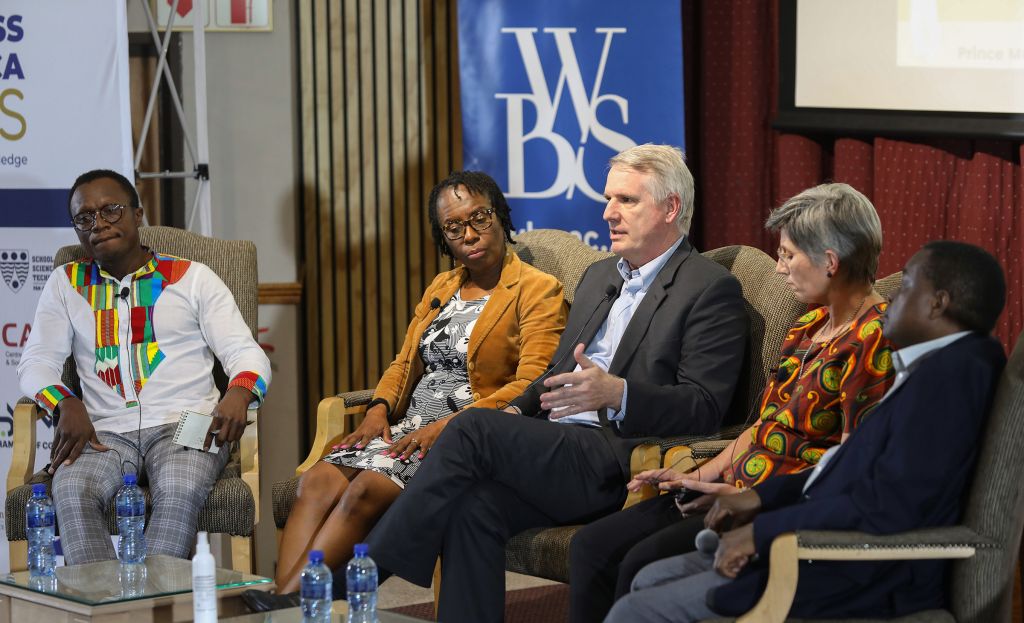
“The goal is to recognize U.S. businesses that are working in Africa in their core businesses, and then to study them and understand the factors that led to that success so the lessons can be shared with others,” Clyde said. “And as an educational institution, WDI is well positioned to capture this knowledge and share it with classrooms and boardrooms around the world.”
WDI Publishing is developing a case study based on Honeywell International Inc., which is dedicated to creating smart, safe and efficient connected technologies for buildings, utilities, factories and workers across South Africa. Honeywell’s work earned it the gold award for a medium-sized business in last year’s competition, and WDI Publishing is examining lessons from those efforts to better enable future business leaders to participate in African economies. WDI plans to support the awards as a partner in 2023.
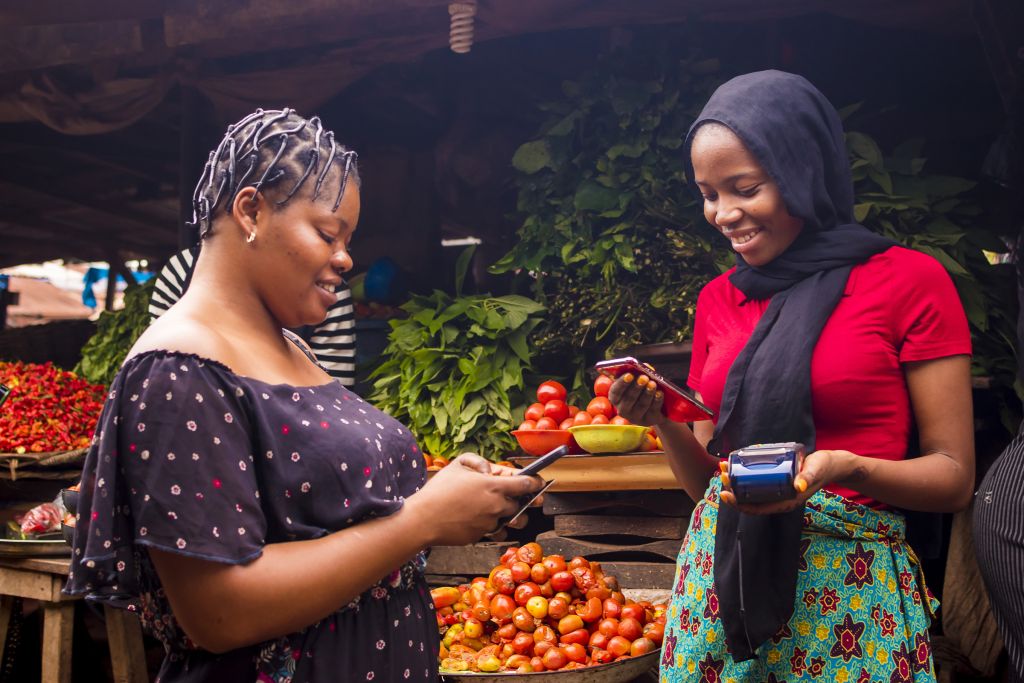
What’s Next: For Entrepreneurs, By Entrepreneurs
Understanding deglobalization’s impact on businesses in low- and middle-income countries. Debunking the myth of low demand for insurance in Africa. Exploring the potential of market-creating innovation. These are just some of the topics discussed on NextBillion.net, WDI’s affiliated media forum, so far this year. Fresh off polling its readers and rolling out the first of several enhancements to the site, NextBillion continues to publish a wide range of views from contributing authors asking big questions — and providing deep analysis of the challenges and opportunities facing emerging markets entrepreneurs.
“Since the site was launched in 2005, NextBillion’s readership has set the course for the platform — and that’s still the case today,” said James Militzer, Managing Editor at NextBillion. “Our readers are also often our writers, and their articles show how entrepreneurs are advancing global priorities by developing innovative local solutions that create opportunities around the world. We’re proud of the role NextBillion plays in low- and middle-income business, by providing a platform for enterprises of all sizes to discuss their work and learn from one another.”
Early product development is helping a nonprofit organization concerned with Malaria prevention
Medicines for Malaria Venture (MMV) is a nonprofit organization working with partners to discover, develop and deliver new, effective and affordable antimalarial drugs. One of MMV’s current projects is developing a long-acting injectable product to protect children at risk of malaria. To ensure the product would achieve its goals, MMV needed clear guidance on what was most important to clinicians treating pediatric patients in malaria-endemic countries. Getting there required understanding the business and real-world clinical side of taking a health product to market. This is familiar territory for WDI’s Healthcare team.
To find the best path forward for its injectable, MMV sought answers from the drug’s final users. As it updated the injectable’s Target Product Profile (TPP), which is a compilation of the desired characteristics that will make up a product or device, MMV wanted to know what aspects of the new product would create the most value for clinicians administering it to children.
“When you develop a product, there are a number of elements that you can act on, and we wanted to know, from the local stakeholders, that is the people in the field, the decision-makers in the countries, what matters to them,” said Céline Audibert, Director of Market Research, Access & Product Management at MMV.
WDI’s Healthcare group wrote and carried out a survey in six African countries — some of the places that would benefit most from such a product. It was sent to healthcare professionals and public health officials, including those in charge of maintaining nationwide malaria-related efforts, in Cameroon, the Democratic Republic of Congo, Senegal, Ghana, Mali and Nigeria. The survey covered a series of characteristics in an injectable product, including duration of protection, efficacy, number of injections, volume per injection, needle size and tolerability.
Uncovering preferences for the product characteristics was the objective of the study — and the key to developing an injectable that would be both adopted and effective. “In the past, there wasn’t a focus on the needs of a particular group of people, at the country or regional level,” said Pascale Leroueil, Vice President of Healthcare, who led the research. “The more we build Target Product Profiles specific to the countries where we’re introducing new products, the better.”
The value of getting these answers at the start of the development process is broad and inclusive. Investors and donors can be sure their money is being put to effective use, drug development teams can focus their energy on the aspects of a product that matter most, and patients can get the drugs that serve them best.

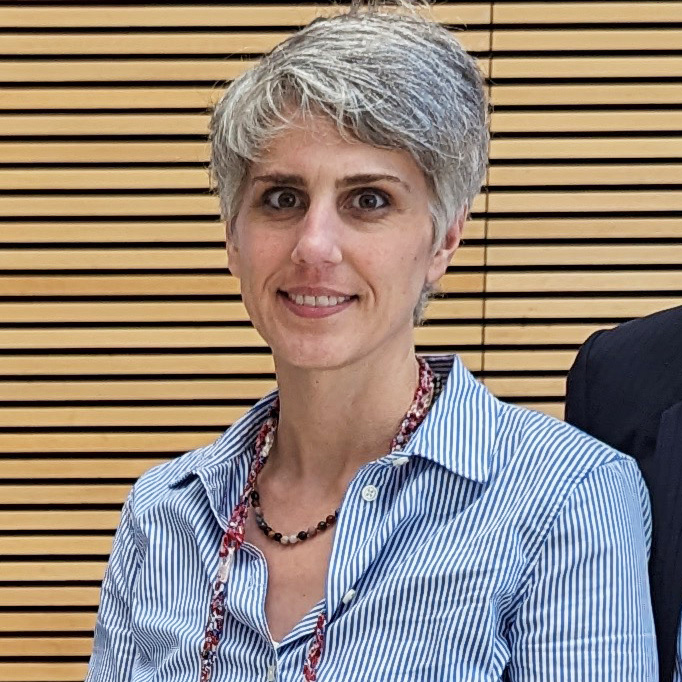
“Businesses that know how their customers will use their products usually have the edge over those that wait for feedback after a product is launched. It’s exciting to see organizations like MMV take this approach.”
— Pascale Leroueil, WDI Vice President, Healthcare
Why Davidson Field Scholar McMichael sees strong local businesses as key to quality healthcare
Above, U-M students participate in WDI supported partner projects in India, Ghana and Ethiopia in 2023.
As she pursued both an MBA and Doctor of Medicine degrees at the University of Michigan, Brennan McMichael was searching for a project at the intersection of healthcare, business and global health — a space where she’d like to direct her career.
She, along with her Michigan Ross teammates, found that space at the Poovanthi Rehabilitation Center in Chennai, India. The center, a WDI partner, is the second location for the business in the state of Tamil Nadu. It was built to meet the growing need for rehabilitative care — a need emerging across the globe. An estimated 2.4 billion people are facing health conditions that may require rehabilitation. That need, according to the World Health Organization, is largely unmet, with less than half of people in need in low- and middle-income countries receiving these services. The goal of the Poovanthi Rehabilitation Center is to work toward filling that gap.
For McMichael, partnering with the group was not only an opportunity to support its important work, but it was also a chance to bolster her business skills. She and her Michigan Ross student teammates were connected to the center through the WDI-organized elective course, Healthcare Delivery in Low- and Middle-Income Countries, which looks at business models for healthcare delivery in emerging markets.
“In this project, I was hoping to gain more exposure to analyses and process improvements in a global setting where high-quality patient care is at the core of the business model,” she explained.

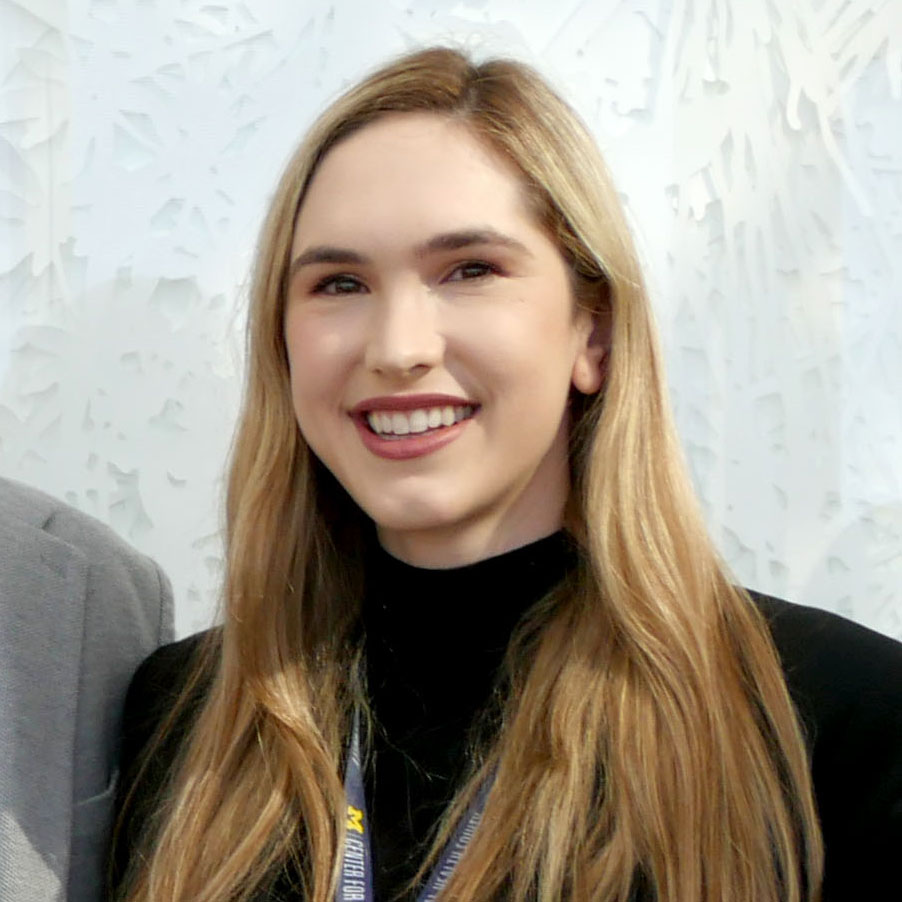
"An important aspect of achieving health equity in low- and middle-income countries is supporting local businesses and strengthening the local economy."
— Brennan McMichael, MBA '23
In this robust experiential learning model, students are paired with a business that requires support with strategy, planning or implementation. Organizations benefit from the engagement, enthusiasm, and knowledge of accomplished MBA students. At each step, students and enterprises work together to reach new heights in their academic journeys and business endeavors.
McMichael and her teammates did that by developing a replicable model of the center’s operations to use in expansion plans across other Indian states. McMichael focused specifically on human resources and training.
As a Davidson Field Scholar, her focus has been on making impactful, system-level changes to academic medicine and global health equity has been a driving force. “An important aspect of achieving health equity in low- and middle-income countries is supporting local businesses and strengthening the local economy,” said McMichael.
In spring 2023, the William Davidson Institute supported 13 partner projects in nine countries involving more than 75 University of Michigan graduate students participating as part of their MBA degree program.
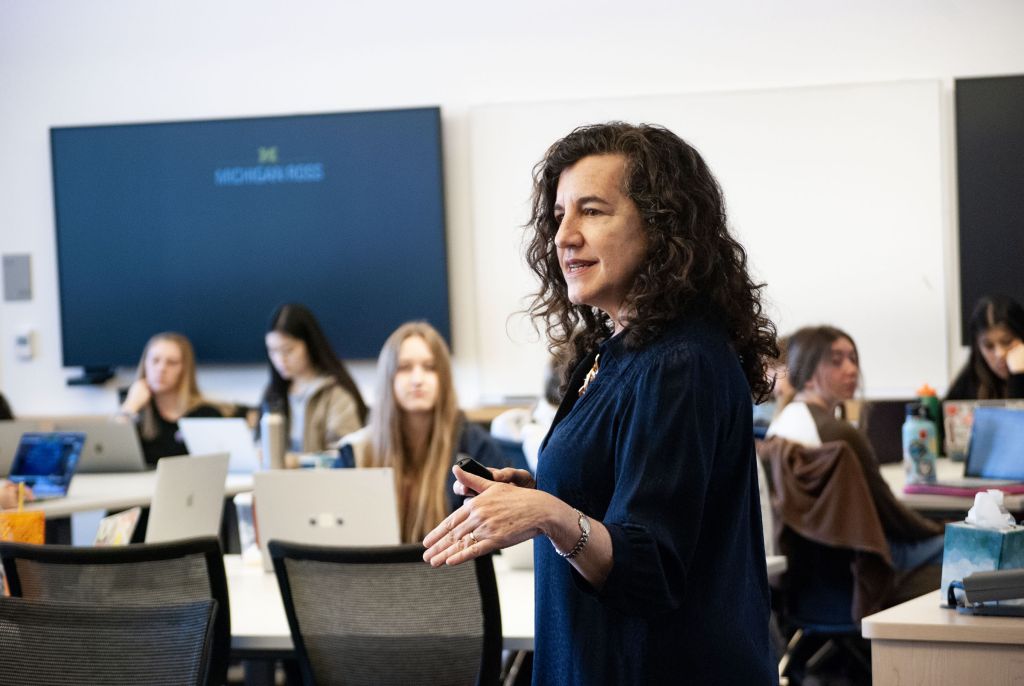
What’s Next: Local Perspectives, Global Connections
Business & Culture, an undergraduate business virtual exchange program organized by WDI, completed its fifth year of connecting students across an ocean. At U-M’s Ross School of Business, the program is nested within the course “Cross-Cultural Business” and features eight synchronous connected sessions with classrooms overseas. More than 350 students from Egypt, Lebanon, Libya, as well as approximately 160 University of Michigan students, have completed the program, which equips young people in the U.S. and the Middle East/North Africa regions with the skills they need to communicate, problem-solve and collaborate in a global team environment.
“This program has proven itself to be a solid first step for many students beginning global business careers,” said Amy Gillett, Vice President of Education at WDI. B&C is supported by the Stevens Initiative, which is sponsored by the U.S. Department of State, with funding provided by the U.S. Government, and is administered by the Aspen Institute.
Project Portfolio
Our Impact in 2022–23
income Countries
Our Mission
To equip economic decision-makers in emerging countries with the tools of commercial success
